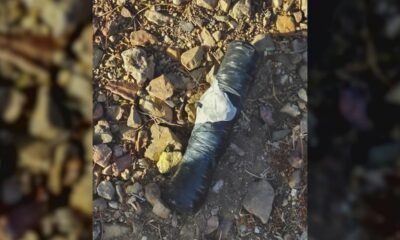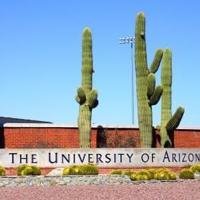Aaron Paul
Arizona GOP Fails to Halt Grand Canyon Monument Protections

A federal judge has dismissed a lawsuit filed by Arizona GOP lawmakers challenging former President Joe Biden’s establishment of the Baaj Nwaavjo I’tah Kukveni – Ancestral Footprints of the Grand Canyon National Monument. The lawsuit contended that Biden overstepped his authority and claimed the monument designation would impede uranium mining and other land development, thus harming the state’s economy.
Judge Stephen McNamee concluded that the Arizona Legislature, along with other plaintiffs, lacked standing to bring the suit. Their arguments regarding legislative power, resource injuries, water rights, and economic burdens were not sufficient to justify the case’s continuation. McNamee stated, “As no Plaintiff has standing, the Court lacks subject matter jurisdiction over this matter and dismisses the parties’ complaints.”
Senate President Warren Petersen and former House Speaker Ben Toma initiated the legal action, seeking to invalidate the monument’s designation. They were accompanied by State Treasurer Kimberly Yee, representatives from Mohave County, and a cattle rancher whose land falls within the monument’s boundaries.
The rancher expressed concerns about regulatory challenges and potential penalties impacting his operations. Despite the ruling, Petersen emphasized that they are considering an appeal, indicating a belief that the issue may ultimately be addressed in higher courts or by political figures. “We are confident this unconstitutional land grab will be reversed,” he stated.
The prospect of changes to the monument’s designation has raised alarms among supporters. Particularly, environmental advocates are wary of potential moves by the incoming administration. Aaron Paul, an attorney with the Grand Canyon Trust, stressed concerns over newly appointed officials reviewing national monuments for resource extraction opportunities, which raises fears about the future integrity of Baaj Nwaavjo I’tah Kukveni.
A recent poll conducted by the Grand Canyon Trust revealed that a significant majority of Arizona voters support the monument and the Antiquities Act. Taylor McKinnon, the southwest director at the Center for Biological Diversity, celebrated the court’s decision as a positive development for the monument’s cultural and ecological significance.
The designation holds profound importance for several Native American tribes, including the Havasupai, Hopi, and Hualapai. Havasupai Tribe Chairwoman Bernadine Jones emphasized that the monument’s designation was the result of her tribe’s persistent advocacy, emphasizing the cultural value of the lands involved.
Matthew Campbell, Deputy Director of the Native American Rights Fund, remarked that though the court’s ruling does not completely reverse previous harms, it establishes vital protections moving forward, safeguarding both cultural heritage and natural resources.
The naming of the monument reflects its Indigenous roots, with the Havasupai language meaning “where Indigenous peoples roam” and the Hopi language translating to “our ancestral footprints.” Hopi Tribe Vice Chairman Craig Andrews noted the dedication to safeguarding their ancestral lands, highlighting the deep historical ties of Indigenous communities to the region.
While the lawsuit’s dismissal marks a notable victory for the monument’s advocates, it also underscores the ongoing tensions surrounding land rights, resource management, and Indigenous sovereignty in Arizona.

















